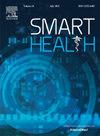Improving gastric lesion detection with synthetic images from diffusion models
Q2 Health Professions
引用次数: 0
Abstract
In the application of deep learning for gastric cancer detection, the quality of the data set is as important as, if not more, the design of the network architecture. However, obtaining labeled data, especially in fields such as medical imaging to detect gastric cancer, can be expensive and challenging. This scarcity is exacerbated by stringent privacy regulations and the need for annotations by specialists. Conventional methods of data augmentation fall short due to the complexities of medical imagery. In this paper, we explore the use of diffusion models to generate synthetic medical images for the detection of gastric cancer. We evaluate their capability to produce realistic images that can augment small datasets, potentially enhancing the accuracy and robustness of detection algorithms. By training diffusion models on existing gastric cancer data and producing new images, our aim is to expand these datasets, thereby enhancing the efficiency of deep learning model training to achieve better precision and generalization in lesion detection. Our findings indicate that images generated by diffusion models significantly mitigate the issue of data scarcity, advancing the field of deep learning in medical imaging.
利用扩散模型合成图像改进胃病变检测
在将深度学习应用于胃癌检测中,数据集的质量与网络架构的设计同样重要,甚至更重要。然而,获得标记数据,特别是在医学成像检测胃癌等领域,可能是昂贵和具有挑战性的。严格的隐私法规和对专家注释的需求加剧了这种稀缺性。由于医学图像的复杂性,传统的数据增强方法存在不足。在本文中,我们探索使用扩散模型来生成用于胃癌检测的合成医学图像。我们评估了它们产生真实图像的能力,这些图像可以增强小数据集,潜在地提高检测算法的准确性和鲁棒性。通过在现有胃癌数据上训练扩散模型并生成新的图像,我们的目标是扩展这些数据集,从而提高深度学习模型训练的效率,以达到更好的病变检测精度和泛化。我们的研究结果表明,扩散模型生成的图像显著缓解了数据稀缺的问题,推动了医学成像领域的深度学习。
本文章由计算机程序翻译,如有差异,请以英文原文为准。
求助全文
约1分钟内获得全文
求助全文

 求助内容:
求助内容: 应助结果提醒方式:
应助结果提醒方式:


